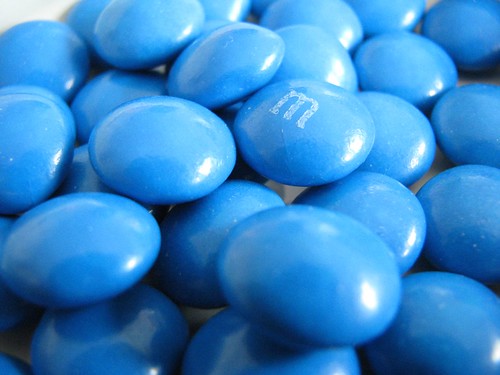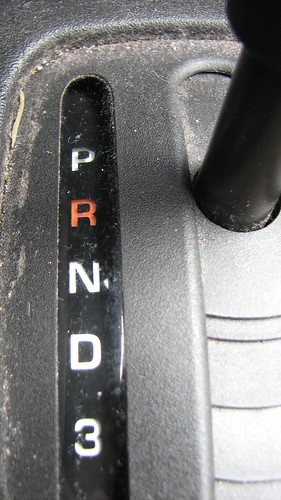Breaking News: M&M’s Effective In Treating Spinal Injuries

A few weeks ago I posted about how swearing can reduce pain. ((Photo courtesy of Daneen_vol)) If you thought that was unbelievable, read on:
Researchers at University of Rochester Medical Center have apparently found that the dye in blue M&M’s can lessen the secondary effects of spinal injuries. ((Via Slashdot)) Those mice that received the injections of this blue dye recovered the ability to walk, and those without the injections did not. The only side effect reported was, I kid you not, that the mice turned blue.
You can’t make this stuff up. Anyhow, here’s the first ten jokes that occurred to me after reading that article:
- The blue M&M’s replaced the tan M&M’s in 1995 when it was discovered the tan ones caused spinal injuries. ((You remember the tan ones, don’t you?))
- Not to be outdone, Skittles researchers report their candies allow you to pee unicorns.
- The WCAB has now issued another en banc opinion that the office candy jar constitutes the rendering of first aid.
- *Disclaimer: This study was funded by The Great Pumpkin, the Easter Bunny, and the Mars Corporation.
- It has now been discovered that the members of the Blue Man Group are impervious to spinal injuries.
- …and that’s why the Smurfs have the lowest workers’ compensation premiums on the Cartoon Network.
- Researchers also found that it was the blue dye in Viagra, not sildenafil citrate, that helped with erectile dysfunction.
- The legislature has amended Labor Code 4604.5(d)(1) to allow a maximum of 24 ounces of M&M’s per industrial injury.
- “Your honor, under Braewood v. WCAB (Bolton), Defendants must authorize the blue M&M’s in order to treat the underlying industrial condition.”
- The Governor has added a new ballot measure that would replace the California MPN system with a new M&M based system.
I think the last one is my favorite. :)

